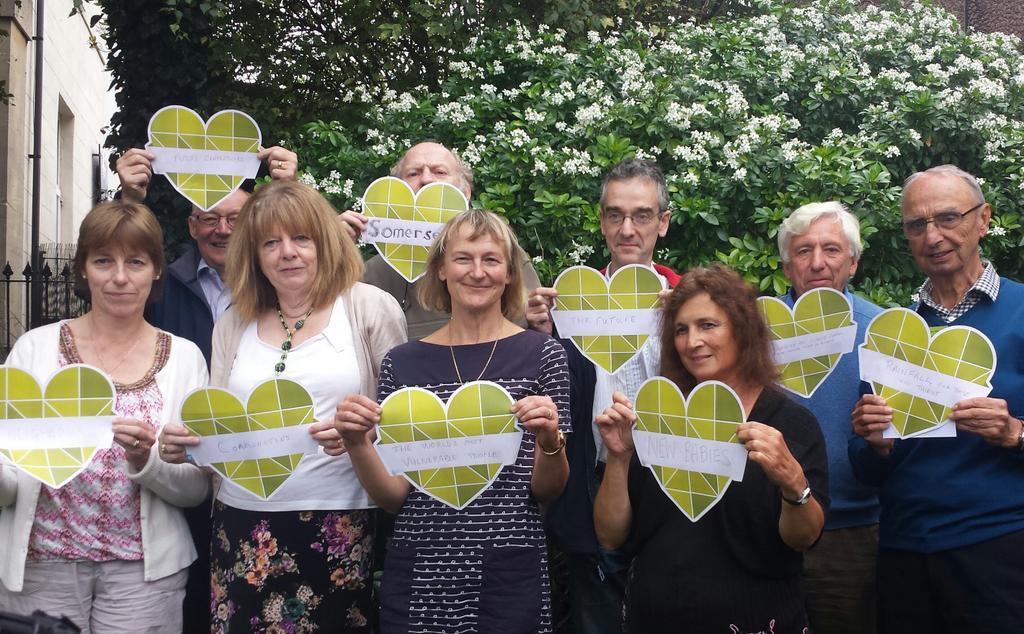CAFOD campaigner? Don’t be shy, reply
 Sarah works in CAFOD’s Campaigns Team.
Sarah works in CAFOD’s Campaigns Team.
Every month, we email CAFOD campaigners – maybe you’re one of them – to share news, feed back on progress and offer new ways in which we need your help.
What do you do when that CAFOD email lands in your inbox? Do you set to and take action? Do you skim through? Do you forward to your friends? Do you delete straightaway? Or do you click reply?
In recent weeks, as our climate change campaign gathers pace, we’ve been receiving lots of replies and emails from you. Some sharing stories of your campaign events, some asking questions, some telling us how we should or shouldn’t communicate.
Fill in our 2 minute campaign survey and tell us what you think
The big questions
Every one of these emails makes me stop and think. They reconnect me with what we are doing and why. They remind me that, without the support of countless parishes and individuals across England and Wales, our campaigns would make little difference.
We know that for every one person who writes to an MP about an issue they care about, there are hundred who think that issue is important.
If the same is true for your emails to us, there are a couple of questions on your minds at the moment: What does climate change have to do with my faith? And it is really more important than anything else?
What questions do you have? Fill in our 2 minute campaign survey and tell us what you think
What’s faith got to do with it?
As a Catholic agency, rooted in Catholic values, we’re aware that it’s our faith that inspires us and calls us to love our neighbours. But applying those values to 21st century issues is not always easy.
The Bible and Catholic teaching have a lot to say about care for creation and the common good, but at it’s heart, there’s a simple message of love for our neighbours, wherever and whoever they may be.
We know from our local partner organisations overseas, and this climate research, that changes in climate are affecting those who are already poorest and more vulnerable, those who have done least to cause the problem and those whose voices are not often listened to by people in power.
It is making their lives harder by increasing pressure on water and making land more difficult to farm, and it’s set to get worse.
We’re not saying that to be a good Catholic you have to take action on climate change. That would be presumptuous. But we are offering, through our campaigns, practical ways that you can show your love for those in greatest need, the global neighbours that you may never meet.
It’s not a competition
So, climate change is important. But what about everything else? What about HIV/AIDS, the role of women, the persecuted Church, access to decent sanitation, Ebola prevention or any other issue close to your heart?
CAFOD and our overseas partners work on a range of issues, all of which affect people living in poverty. And we will continue to do so. It’s a not a competition to see which issue is the most important.
But climate change is particularly worrying, because of its role as a ‘threat multiplier’ – it makes existing problems worse: migration, water, food, conflict, gender inequality and more.
It’s also worrying because the local, national and global attention we need to tackle climate change is not strong enough yet. The sooner we act, the more difference we can make.
And it’s urgent. Because this year in particular, we have a number of real opportunities to make progress that will affect our response to climate change for decades to come. As a Catholic community, inspired by the strong commitment of Pope Francis to the care of creation and poor communities, we have a particular role to play.
Speak up about climate change. Sign up to our regular campaign emails
Tell us what you think
We owe it to the poor communities that we stand alongside to make our campaigns as effective as possible in improving their lives and addressing the issues that affect them most.
We owe it to you too. Your time and energy, your passion and prayers, are freely given. It’s right that we hear what you’ve done and listen to what you think.
So, don’t be shy, reply. Fill in our short survey now